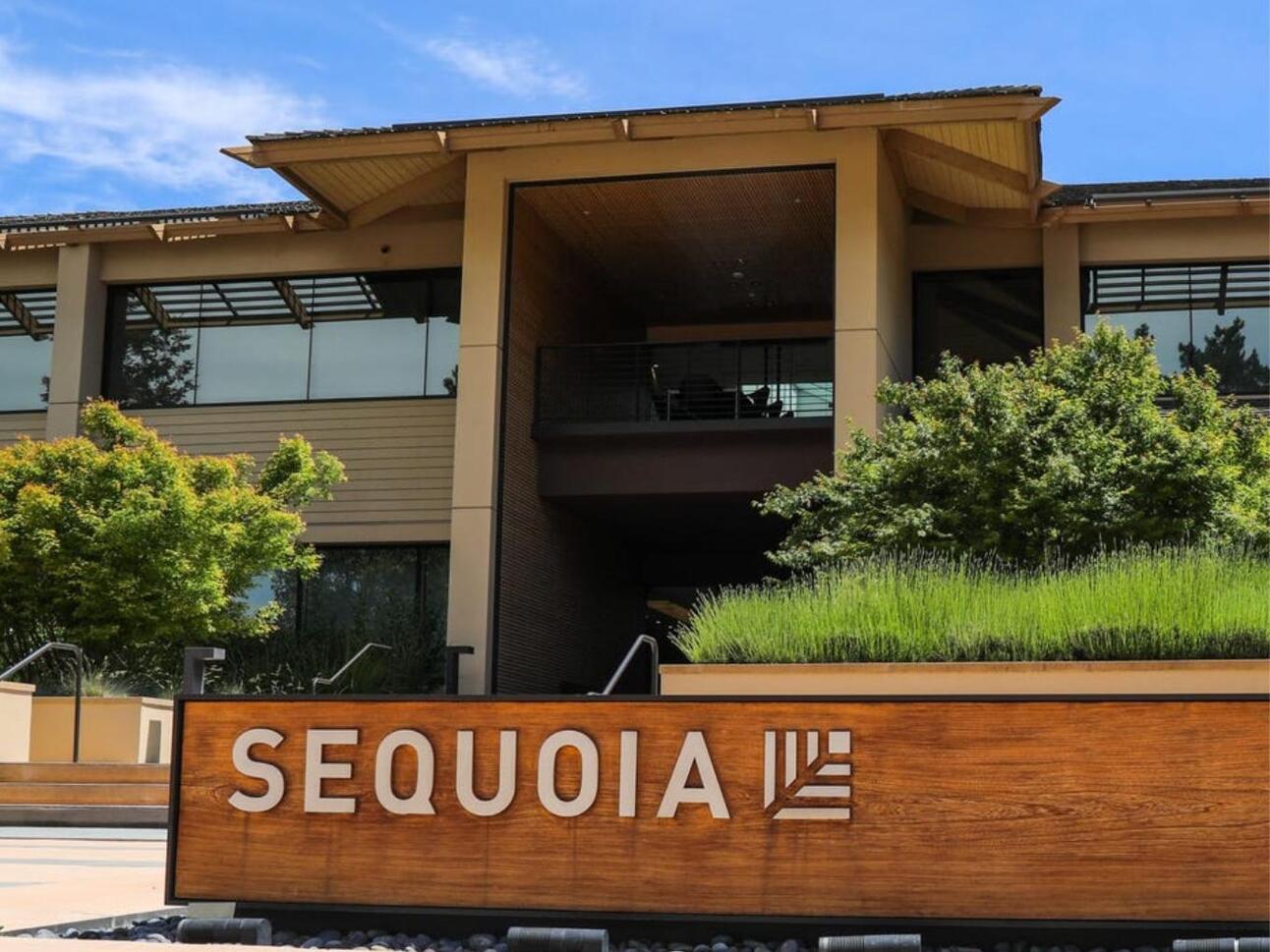
Welcome to Samosa Capital’s evening briefing — the best way to stay up-to-date on India’s financial markets. Today we talk about a corruption scandal engulfing one of the world’s most prestigious venture capital firms, Sequoia Capital, and what it reveals about India’s dilemma: a need for foreign investment but a love for regulation. Then, we’ll close with Gupshup, a round-up of the most important headlines.
Have a question you want us to answer? Fill out this form and you could be featured in our newsletter.
—Shreyas, [email protected]
Market Update

Benchmark indices ended the week down 2.49 percent, largely driven by rising US yields and weak earnings expectations, following several weeks of modest gains in Indian markets.
Live Event
Seats are running out for our upcoming “Future of India” expert panel and networking event on Wednesday, February 12, 2025, in New York City. Buy now here, or earn a free ticket by sharing Samosa Capital with three friends.
Corruption Scandal Engulfs Sequoia Capital
India’s Central Bureau of Investigation (CBI) has leveled allegations of corruption against two major global players, Diageo and Sequoia Capital, claiming that both firms engaged in questionable financial transactions to influence government decisions. The unfolding case has put a spotlight on governance challenges in India, a country striving to attract foreign investment while maintaining a strict regulatory framework.

The Allegations
Diageo: The British spirits company, which owns a majority stake in United Spirits Ltd., is accused of paying $15,000 to a firm linked to Congress Party lawmaker Karti Chidambaram. The CBI contends that this payment was intended to lift a 2005 government ban on the sale of duty-free Johnnie Walker whisky. The payment was allegedly disguised as a consultancy fee, a common method to obscure improper financial dealings. Diageo reportedly suffered significant losses due to the embargo, imposed by the India Tourism Development Corporation, a government entity with a monopoly on duty-free liquor sales.
Sequoia Capital: The U.S.-based venture capital firm is alleged to have made suspicious transactions with Chidambaram’s firm in connection with obtaining investment approval in 2008. The CBI asserts that the former finance minister, P. Chidambaram, who is Karti’s father, was in a position to influence these approvals. However, P. Chidambaram is not named as an accused in the case.
Both Diageo and Sequoia have declined to comment on the allegations. Karti Chidambaram, in a court filing, denied the charges, claiming he had no formal ties to the implicated firm at the time of the alleged misconduct. He called the case “politically motivated” and an act of “vendetta.”
Political and Economic Context
The allegations come at a politically charged time as India approaches pivotal state and general elections. The BJP-led government has frequently highlighted its anti-corruption initiatives as a core achievement. This case involving opposition Congress Party figures could amplify partisan tensions, with critics suggesting that the timing of the investigation is politically motivated.
For the Modi government, which has been actively courting foreign investment through schemes like production-linked incentives (PLI), this case poses a challenge. While it reinforces the administration’s commitment to addressing corruption, it risks portraying India’s investment climate as fraught with regulatory and political risks.
Broader Implications for Foreign Investment
India remains one of the fastest-growing major economies, with immense potential for foreign investors. However, cases like this serve as reminders of the complex and sometimes opaque regulatory environment. Multinational companies operating in India face significant compliance challenges, particularly in navigating the intersection of business and politics.
The Modi government has frequently highlighted its efforts to streamline regulatory processes and reduce bureaucratic red tape. Yet, the allegations against Diageo and Sequoia underscore the importance of maintaining rigorous due diligence when entering the Indian market. For many firms, these revelations may prompt a reassessment of their compliance protocols and local partnerships. Sequoia, for years, has been a huge investor in American markets, and corruption with India could hinder foreign investment going forward.
Future Resolutions
The CBI’s case will likely take years to resolve, but its outcome could have far-reaching implications. A conviction would signal India’s seriousness about tackling corruption, even when high-profile global firms are involved. However, if the case falters or is perceived as politically motivated, it could undermine investor confidence in India’s regulatory impartiality.
As the investigation unfolds, companies eyeing India will closely monitor the proceedings. For the Modi government, balancing its commitment to anti-corruption with the need to maintain a welcoming investment environment will be crucial in preserving India’s reputation as a top destination for global capital.
Gupshup
Macro
The Indian rupee hit a record low of 85.97 against the U.S. dollar, marking its 10th straight weekly decline amid a strong dollar and weak capital inflows. Despite interventions by the Reserve Bank of India, the rupee remains under pressure, with foreign investors pulling over $3 billion from Indian markets in January.
India's foreign exchange reserves dropped to a 10-month low of $634.59 billion as of Jan. 3, following a $5.7 billion decline in a week and a $70 billion slide from their peak in September, amid rupee pressure from a stronger dollar and slowing capital inflows.
Indian banks have urged the Reserve Bank of India to address liquidity shortages, which have persisted since mid-December, averaging a 1.5 trillion rupee daily deficit. Suggestions include FX swaps, bond purchases, and a temporary cash reserve ratio cut to ease tight liquidity and curb rising borrowing costs.
India's industrial output surged 5.2 percent year-on-year in November, the highest in six months, driven by strong growth in consumer durables and capital goods. Manufacturing output rose 5.8 percent, while electricity and mining grew 4.4 percent and 1.9 percent, respectively.
Equities
Indian shares ended the week with losses, as concerns over corporate earnings overshadowed gains in IT stocks following positive demand signals from TCS. The Nifty 50 and Sensex fell around 2.4 percent each, breaking a two-week winning streak, with small-cap and mid-cap indexes dropping 7.3 percent and 5.8 percent, respectively.
Global alcohol firms, including Diageo and Heineken, are seeking $466 million in unpaid dues from Telangana, prompting Heineken to halt supplies in the state, India’s largest beer consumer. The standoff highlights challenges in India’s $45 billion alcohol market, where states control pricing and revenue policies.
Indian power firm CESC reported a 5.7 percent drop in Q3 profit to ₹2.65 billion due to higher tax expenses and reduced regulatory income, despite a nearly 10 percent rise in revenue driven by increased power generation. Shares of the company fell 4.6 percent following the announcement.
Alts
India's IPO boom is set to persist in 2025, with over 90 companies aiming to raise ₹1 trillion ($11.65 billion) this year, BSE CEO Sundararaman Ramamurthy said. This follows a record ₹1.6 trillion raised in IPOs by 91 firms in 2024.
Vedanta Resources secured a $300 million loan commitment from Barclays, First Abu Dhabi Bank, and Mashreq to refinance existing bonds and address debt obligations. The company is seeking to expand the deal by $200 million, strengthening its liquidity and reducing net debt, which stood at $11.36 billion as of September 2024.
Policy
See you Monday.
Written by Yash Tibrewal. Edited by Shreyas Sinha.
Disclaimer: This is not financial advice or recommendation for any investment. The Content is for informational purposes only, you should not construe any such information or other material as legal, tax, investment, financial, or other advice.